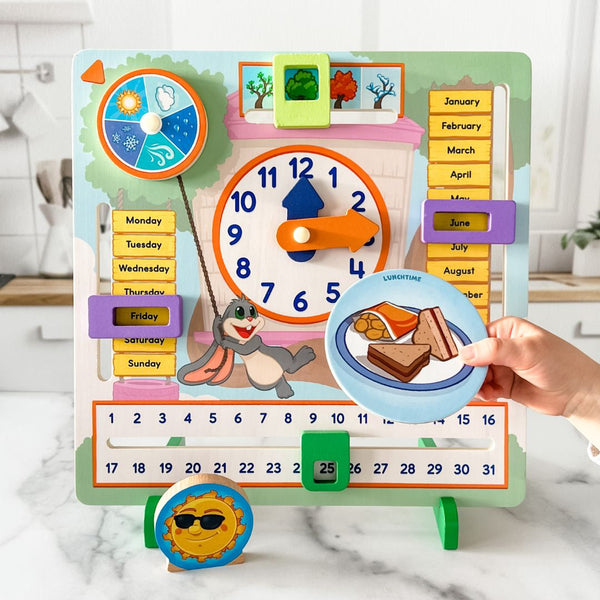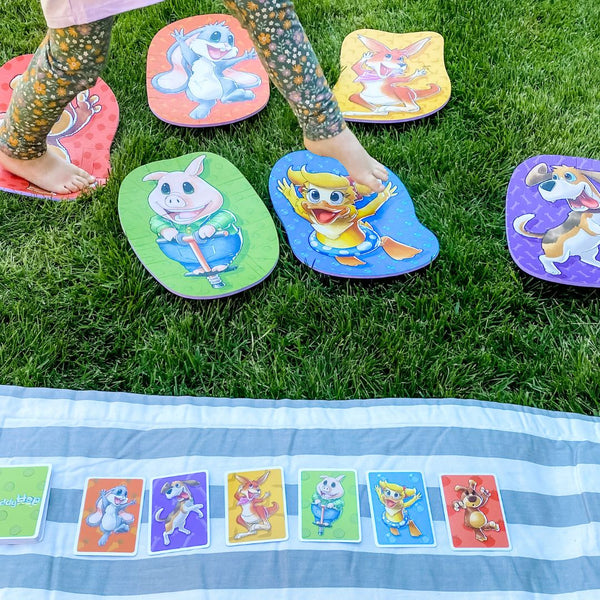Sequencing Skills Activities Designed for Young Kids

During early childhood development, sequencing activities for preschoolers can help little ones recognize patterns to make sense of the world around them. Whether practicing at home or in the classroom, structuring play around sequencing activities is essential for a child's cognitive development.
Sequencing activities involve arranging events, steps, or images in a logical order—from first to last. For young learners, sequencing builds storytelling, problem-solving, and following instructions; common examples include story picture cards, daily routine charts, and following a recipe.These same fundamental skills are used throughout more advanced education as well as in our professional careers.
What Exactly is Sequencing, and Why Does it Matter to Early Childhood Development?
Sequencing, or 'temporal ordering', organizes ideas or events chronologically and helps kids anticipate 'what comes next'. As grown-ups, the core sequencing skills we use throughout our day, like unloading a dishwasher before adding dishes, are often an autopilot task. However, for young children or those with special needs, early sequencing activities like putting on socks before shoes or understanding why grey clouds often result in rain can help kids understand how simple processes work as their skills develop and become more complex.
Sequencing activities for kids are already a part of your child's daily life. However, being intentional with your child's development with educational games tailored to these skills can help give them a head-start on early brain development and set them up for future academic success.

Why are Sequencing Activities for Preschoolers Essential?
Sequencing activities for kids can help preschoolers develop the skills to understand how to tie their shoes, tell time, and organize letters to spell words and sound them out. Furthermore, sequencing activities practiced at home or in the classroom can help older children grasp complex Math & STEM concepts like coding and developing advanced language arts and writing skills.
Sequencing Activities for Kids Help Build Future Skills Like STEM & Mathematical Thinking
Let's talk about STEM & STEAM for a moment and how sequencing plays a role in future skills. According to the Pew Research Center, STEAM careers are the careers of the future and offer up to two-thirds more in compensation than other fields. STEM and STEAM professionals use sequence patterns to solve math problems, code web applications, formulate science experiments, and construct buildings. Therefore, those little sequencing activities for kids help your child explore innovative-thinking and problem-solving at a young age.
Sequencing Activities for Kids Help Develop Life Skills
Sequencing activities for kids can help them develop essential life skills like predicting outcomes, identifying patterns, goal setting, and goal completion. These skills help older children weigh pros and cons, analyze opportunities, and understand the sequence needed to complete a goal or important task.
Sequencing Activities for Preschoolers
Make early brain development fun with these preschool sequencing games!
My Fun Day
1-2 players • 10 min • 3 & up
Little learners will have a blast exploring the months of the year, the days of the week, the four seasons, and telling time in My Fun Day.
Using the colorful wooden activity board and the fun activity disks helps children build awareness of the key elements in their daily world. A fun activity board for introducing children ages 3 and up to sequencing and how time affects their day.
Buddy Hop
2-5 players • 10–15 min • 4 & up
This sequencing preschool game gets little bodies moving as they hippity-hop in this two-in-one game. Game one concentrates on building memory and sequencing skills; game two concentrates on building quick visual association skills.
Rooby's ABCs
1-4 players • 10 min • 3 & up
Early learners fly with Rooby Roo to practice their ABCs in this alphabet sequencing preschool game! Players take turns drawing one of the 26 letter tokens from the bag, placing them on the alphabet boards with the matching letter. When a player completes a board, they collect a Rooby token, and the player with the most Rooby tokens wins the game when all the letters have been played.
*Tip: Looking for sequencing activities for kindergarten or 1st grade students? Check out Team Digger, our early coding game where kids use sequencing to help their dogs dig for treats around a dog park.
Sequencing Activities for Preschoolers Help Young Learners Thrive
Planning sequencing activities preschool kids will love is easy to implement when you have the right learning tools, like fun educational games!
By starting preschoolers with fundamental skills like sequencing, they have the building blocks for future skill development. Sequencing preschool games can also help them develop those primary cognitive connections essential to early childhood development.
For more preschool game recommendations:
Fun Preschool Literacy Activities to Try!
More on the blog:
This blog was originally published on November 21, 2023. It was updated on November 11, 2025.



